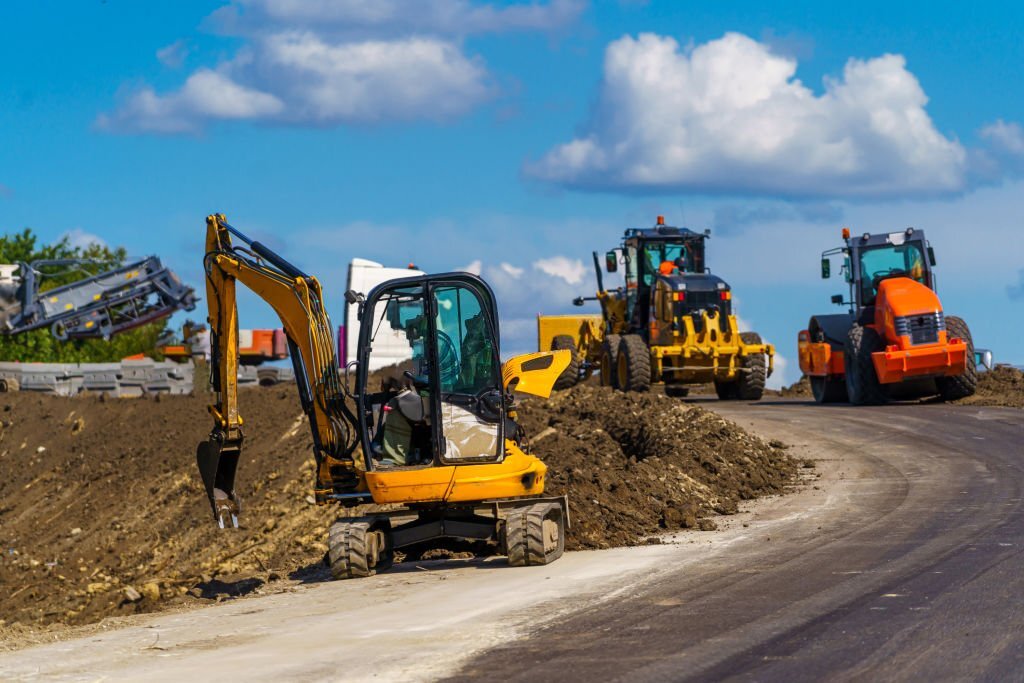
Compactors play a crucial role in road construction by ensuring proper compaction of soil, aggregates, and asphalt, which is vital for the stability, durability, and smoothness of road surfaces. These heavy machines utilize various techniques to apply pressure and vibration, eliminating air voids and achieving the desired density. This article highlights the significant role of compactors in road construction, their importance in creating high-quality road surfaces, and the different types and techniques used in the compaction process.
Ensuring Proper Compaction
One of the primary functions of compactors in road construction is to achieve proper compaction of the materials used in the road surface. Whether it’s soil, aggregates, or asphalt, compaction eliminates air voids and increases the density of the material. Proper compaction ensures that the road surface is solid, stable, and resistant to deformation under traffic loads. It also minimizes the risk of settlement, rutting, and surface irregularities, leading to a smoother and safer driving experience.
Types of Compactors
There are various types of compactors used in road construction, each designed for specific compaction tasks:
a. Vibratory Rollers: Vibratory rollers are widely used in road construction and come in different sizes and configurations. These rollers apply vibration and weight to the material being compacted, ensuring uniform compaction and maximum density. They are particularly effective for compacting asphalt layers.
b. Pneumatic Rollers: Pneumatic rollers use rubber tires instead of steel drums. These rollers apply pressure through the inflation of the tires, providing kneading and sealing action to compact the material. Pneumatic rollers are commonly used for compacting cohesive and granular soils.
c. Static Rollers: Static rollers, also known as smooth-wheel rollers, apply static weight to the material. They are ideal for compacting thin layers of asphalt or granular materials, providing a smooth and even surface finish.
Compaction Techniques
Compactors employ various techniques to achieve optimal compaction:
a. Static Compaction: Static compaction involves applying a constant static force to the material without any vibration or kneading action. It is commonly used for compacting cohesive soils and thin asphalt layers.
b. Impact Compaction: Impact compactors deliver high-energy impacts to the material, causing it to densify. This technique is suitable for compacting granular soils and aggregates.
c. Vibratory Compaction: Vibratory compactors use vibrations to break down air voids and increase the density of the material. This technique is highly effective for compacting asphalt layers and granular soils.
Importance of Proper Compaction
Proper compaction is crucial for road construction as it directly influences the longevity and performance of the road surface. Insufficient compaction can result in premature failures, such as rutting, cracking, and potholes. These defects can lead to costly repairs and maintenance, as well as safety hazards for motorists. By ensuring proper compaction, compactors contribute to the longevity, stability, and durability of road surfaces, reducing the need for frequent repairs and ensuring a smooth and safe driving experience.
Conclusion
Compactors play a vital role in road construction by ensuring proper compaction of soil, aggregates, and asphalt. Through the application of pressure and vibration, these heavy machines eliminate air voids, increase material density, and create stable and durable road surfaces. Different types of compactors, such as vibratory rollers, pneumatic rollers, and static rollers, are utilized based on the specific compaction requirements. By employing the right compaction techniques, compactors contribute to the longevity, stability, and smoothness of road surfaces, providing motorists with safe and reliable transportation infrastructure.

